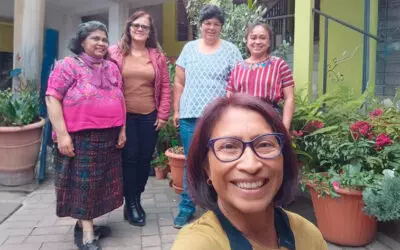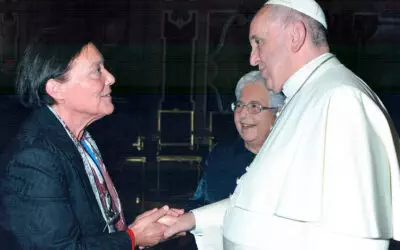On 8 February, a prayer marathon for an economy which cares for and values the human person and nature, which includes and does not exploit the most vulnerable. The International Day of Prayer and Awareness against Human Trafficking is observed on 8 February 2021, the feast day of St Josephine Bakhita. It invites us to reflect deeply on this issue and to make the connection between our contemporary world economy and human trafficking. The Focolare Movement is closely associated with a worldwide network of concerned associations and partners, including the Dicastery for Consecrated Life, the Pontifical Council for Justice and Peace, the Pontifical Council for the Pastoral Care of Migrants and Itinerant Peoples, the Pontifical Academy of Sciences, Caritas International, and many more. It’s a joint call for an economy not underpinned by illegal trafficking or exploitation, but which promotes the life and dignity of every person and dignified work for all. Human trafficking exists because it generates huge sums of ‘easy-money’ for the traffickers. But actually, we all profit from trafficiking, in some sense, when we obtain too-low cost goods or services. We must change direction and say no to everything that destroys life. The International Day of Prayer and Awareness against Human Trafficking 2021 turns the spotlight on one of the main causes of human trafficking: our current dominant economic model, with limits and contradictions which have been accentuated by the Covid-19 pandemic. Human trafficking is an integral part of this economy. The victims of trafficking like “goods” are trapped within the chains of a globalization governed by financial speculation and low cost competition. What’s needed is a structural and global vision of trafficking to demolish all the perverse mechanisms which feed the demand for persons to be exploited. Because the whole economy is diseased to its very core. Oscar Wilde is credited with defining a cynic as someone who ‘knows the price of everything and the value of nothing’. Well, this our economy seems to be dominated by cynicism. Referring to goods, services and people, the market not only determines the price, but, even more drammatically, it’s the price that determines the value. A business falls victim to this logic by being increasingly valued by the financial markets according to the share price and not from the added value of its human capital. So trafficking is just the tip of the iceberg. It’s the magnified expression of a malaise caused by prevalent neoliberalism based on a (false) idea of economic liberty in which every ethical, social and political consideration is deemed superfluous and an obstacle. On the other hand, an economy without human trafficking is an economy which cares for and values the human person and nature, which includes and does not exploit the most vulnerable. How can we participate in the World Day of Prayer? On 8 February you can follow the prayer marathon on the special Youtube channel over seven hours, in five languages, highlighting stories of different ways of combatting human trafficking around the world. More information from: www.preghieracontrotratta.org
Lorenzo Russo




0 Comments